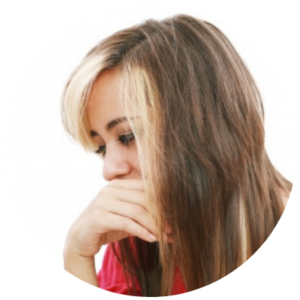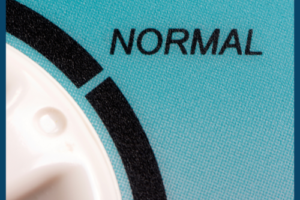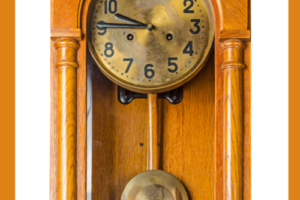
How Anxiety Impacts Organization
Guest blog post from Dr. Annette R. Perot, Ph.D.
Everybody experiences anxiety from time to time. In fact, some amount of anxiety facilitates motivation and helps us focus on what’s important to us in our lives, whether studying for an exam or meeting a work deadline. For some of us, however, anxiety becomes more significant and interferes with what we want to accomplish in life, including being more organized.
4 ways anxiety impacts getting and staying organized:
- Concentration: When we’re anxious or worried, we can easily have difficulty staying focused on the task at hand, including organizing our papers and possessions. It’s also common for us to have trouble making decisions, such as what things to keep and what to get rid of or even how we want to go about organizing it all.
- Energy: Anxiety can leave us feeling fatigued and
 depleted, leaving little energy left for getting organized. If organizing is not a task you get excited about, feeling low in energy will not help your motivation to get started.
depleted, leaving little energy left for getting organized. If organizing is not a task you get excited about, feeling low in energy will not help your motivation to get started. - Avoidance: Since approaching our clutter often initially increases our feelings of anxiety, feeling stressed or overwhelmed can make it hard to even get started organizing. So, we might avoid the task, thinking it will make us less stressed and overwhelmed. Yet avoidance only results in greater disorganization and anxiety, creating a vicious cycle.
- Perfectionism & Procrastination: Holding overly high expectations of ourselves can sabotage our ability to get organized and subsequently produces the exact outcome we are trying to prevent. While we hope our high expectations will lead to greater productivity, perfectionism can actually fuel the belief of “If I can’t do it right, why bother doing it at all?” Our fear of failing might lead us to procrastinate getting started. For some, perfectionism leads to spending significant time organizing one small area, attempting to get it “just right,” leaving no time left to tackle major areas.
Helpful Tips
- First, determine what’s contributing to the anxiety and disorganization so you can address the actual issue. Are you feeling anxious because you have difficulty saying “no” to requests for your time? Perhaps your disorganization is related to having an anxiety issue, such as Obsessive Compulsive Disorder (OCD), and you avoid organizing so you won’t have to touch things you fear are “dirty” and will spread contamination. Or you feel distressed at the thought of getting rid of some of your possessions, even though you have run out of space for all your things. Consider consulting with a mental health professional who can help you determine the nature of your anxiety and make recommendations for addressing the issue.
- If concentration is a problem, eliminate distractions by silencing your cell phone and turning off the television. Consider having an organizing buddy, taking turns working on each other’s space, or helping each other decide what should stay and what needs to go. You can even remind one another to stay focused if you get distracted.
- If organizing isn’t something you naturally find
 pleasurable or you struggle with lack of energy, gradually build your tolerance for the task. Set a timer for five minutes – you can work your way up to longer amounts of time organizing as your anxiety decreases. Remember, even a few minutes of organizing at a time will eventually lead to less clutter.
pleasurable or you struggle with lack of energy, gradually build your tolerance for the task. Set a timer for five minutes – you can work your way up to longer amounts of time organizing as your anxiety decreases. Remember, even a few minutes of organizing at a time will eventually lead to less clutter. - If you’re likely to avoid organizing at all when feeling overwhelmed, break the job down into smaller tasks, focusing on one piece at a time. Accomplishing a section will help increase your confidence and motivate you to tackle other areas.
- If perfectionism prevents you from organizing, work on setting more realistic expectations regarding how much you will accomplish and the quality of your work. All tasks don’t require a “perfect” job. While you want your heart surgeon to be mistake-free, perhaps your books on the bookshelf can be “good enough.”
 Dr. Perot is a licensed psychologist, maintaining a full-time private practice in Durham, North Carolina. Dr. Perot specializes in working with adults with anxiety and anxiety-related disorders, including OCD and Hoarding Disorder. In addition, she is a past president of the North Carolina Psychological Association. Dr. Perot can be reached at drperot@gmail.com or www.triangleanxietycenter.com.
Dr. Perot is a licensed psychologist, maintaining a full-time private practice in Durham, North Carolina. Dr. Perot specializes in working with adults with anxiety and anxiety-related disorders, including OCD and Hoarding Disorder. In addition, she is a past president of the North Carolina Psychological Association. Dr. Perot can be reached at drperot@gmail.com or www.triangleanxietycenter.com.
Image attribution
- Anxiety by TheDigitalArtist via Pixabay
- Person David Castillo Dominici via FreeDigitalPhotos.net
- Perfection: ©2020 Janice Russell
Tag:ADHD, anxiety, autoimmune disease, brain based disorders, depression, GAD, guest, life transitions, Life Transitions Organizing, Life Transitions Resources, life-disrupting situation, OCD, OCPD, organization, productivity and organizing professional, professional organizer, TBI, Transition Success Program



